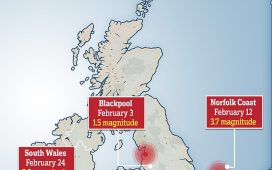[ad_1]
Ministers must recruit an army of “contact tracing” volunteers to warn people who mayhave been infected by a Covid-19 sufferer, say public health experts.
More than 50 leading scientists say health secretary Matt Hancock’s plans to introduce 100,000 tests a day by the end of April will only solve part of the problem of establishing how far the virus has spread.
The scientists have come together to form the UK Covid-19 Group of Experts, and say contact tracing – identifying then alerting people who have been within infection range of a person confirmed to have the virus – will be a vital addition to testing when the lockdown begins to ease.
Professor Allyson Pollock, a consultant in public health and director of the Newcastle University Centre for Excellence in Regulatory Science, said: “The government needs to recognise that this isn’t just one big epidemic. It’s lots of outbreaks at different stages that all need to be tackled locally through local teams, and local action plans in each area so measures can be lifted over time.”

Public Health England was contact tracing cases until 12 March, at which point 32 people had died after contracting coronavirus. Schools stayed open for another eight days and it was 11 days before Boris Johnson announced the lockdown, on 23 March.
In the face of growing criticism over the lack of testing for frontline health professionals and those with mild symptoms, Hancock announced a “five-pillar” plan last Thursday. He pledged to increase lab testing dramatically, introduce new antibody tests for people who may have had the virus, and conduct “surveillance testing” – checking samples of the population to model the extent of the virus’s spread.
“We’ve lost nearly two months in getting on top of this epidemic,” Pollock said. “And that’s what the scandal is really.” She said there would be a second wave of infections, and planning needed to start now.
“Clearly we don’t have the capacity to do contact tracing, but we can just call for volunteers, train them up to do it and combine that with mobile phone apps as in Singapore and South Korea and China.”
Contact tracing was used in Wuhan, where 1,800 teams of five people went house to house, and Ireland last week said it would recruit 1,400 contact tracers. On 27 March the World Health Organisation director general, Tedros Adhanom Ghebreyesus, reiterated the need for “early detection and isolation of confirmed cases [and the] identification, follow-up and quarantine of contacts”.
Some UK public health professionals, however, believe it is too late for contact tracing because the virus has spread too far. And the example set by Singapore appears increasingly questionable: the country is to close most workplaces and all schools this week following the prime minister’s admission that “despite our good contact tracing” the authorities have been unable to ascertain the origin of nearly half its new cases.
One senior director of public health, responsible for local health teams including contact tracing, dismissed the experts group as “armchair commentators”. “Contact tracing would be a waste of time right now,” said the director, who asked not to be named. “We should have done better on testing, but that’s being resolved. Contact tracing would tell you nothing because it’s so widespread. We have to focus on increasing testing, and most virologists I’ve spoken to would agree.

“I suspect there will come a time for contract tracing again, but not now. It’s when you start getting outbreaks in care homes and prisons and hospitals, or possibly when we’re through the first or second peak and the numbers are bumping along the bottom.”
Yet the calls for contact tracing to resume appear to be gathering steam. Shadow health secretary Jonathan Ashworth has repeatedly called for testing and contact tracing.At the beginnng of last week, Pollock and three others published a paper in the British Medical Journal questioning why the government was not following WHO advice. Then last Wednesday, 24 public health experts, led by David McCoy, professor of global public health at Barts Medical School, signed an open letter urging the government “to expand community testing and individual case detection, contact tracing and appropriate isolation as a core disease control measure”.
“Testing and quarantine are not enough on their own,” McCoy said, “especially if we want to avoid some of the serious harms that would be caused by prolonged lockdown. It is not clear why the government is resisting the evidence from elsewhere, as well as the views of the majority of public health opinion.”
The group has since expanded to include more than 50 public health experts, Pollock said.
AnneliesWilder-Smith, professor of emerging infectious diseases at the London School of Hygiene and Tropical Medicine, said: “To anyone who tells me that contact tracing is too expensive or not do-able, I just say, rubbish. We are now basically quarantining 68 million people. That is so much more expensive. But at the moment, we cannot do contract tracing.”

She said with the epidemic “out of hand”, the lockdown needs time to interrupt the virus’s transmission.
“Then we can go back to the basics of dealing with this outbreak. You test, test, test, test. You find a case, you isolate the case; you find their contacts and you isolate their contacts.”
The Department for Health and Social Care did not respond to requests for comment, but some academics believe smartphone apps might provide automatic contact tracing.
NHSX, a division of the NHS responsible for digital innovation, is working on an app that would monitor other phones’ Bluetooth signals, keeping a record of those most at risk – possibly anyone who stayed within two metres for 15 minutes, the FT reported. If a user tested positive, they could upload a notification, which would warn people they needed to self-isolate.
Yet the tracking technology would raise privacy concerns, and the system would not work efficiently unless tens of millions of people downloaded the app.
“Mobile technology may be a useful adjunct, but contact tracing and the behaviour change we subsequently want to engender needs an active human element,” McCoy said.
[ad_2]
READ SOURCE





